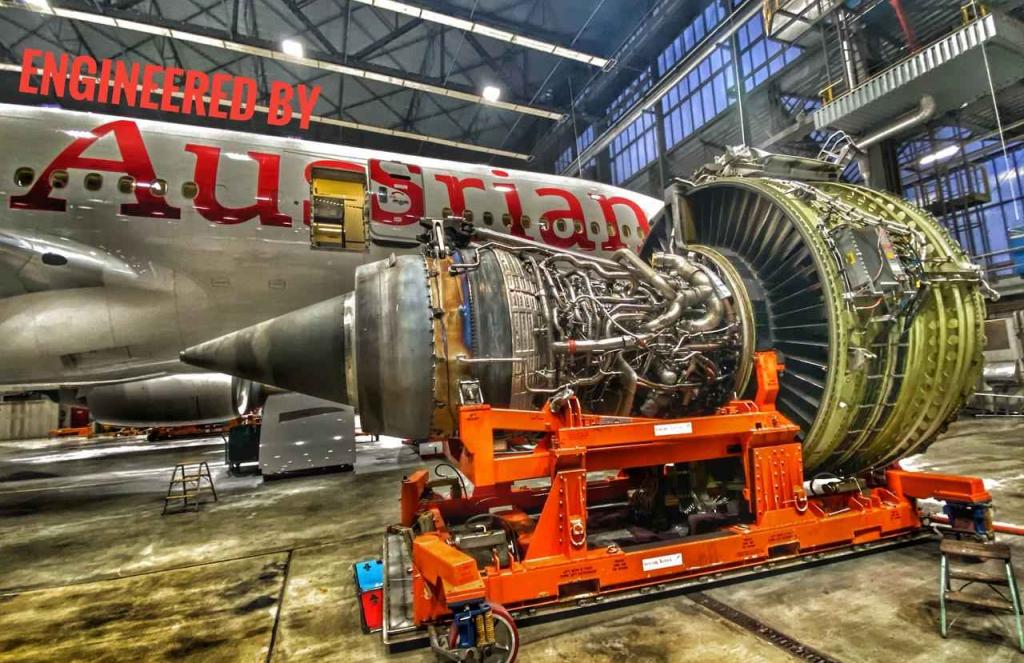Thessaloniki gets ready for its metro launch in November
The underground rapid transit lines have been under construction for almost two decades due to various project delays
 TheMayor.EU logo
TheMayor.EU logo 
The new fuel is compatible with both airplane engines and fueling infrastructure , Source: Austrian Airlines
The new fuel will emit 80% less CO2, as opposed to normal jet fuel
Today, OMV announced the start of its first deliveries of sustainable aviation fuel to Austrian Airlines from the refinery in Schwechat, near Vienna International Airport (Schwechat Airport). The deliveries are part of the cooperation agreement between the two companies, in line with Austria’s commitment to reach carbon neutrality for the aviation industry by 2050.
The fuel itself is made from recycled cooking oil and according to a statement by OMV, will cut emissions by an impressive 80%. However, as with many carbon-light technologies, it is still quite expensive and it is hard to produce the fuel at a larger scale – the company cannot source enough oil to fuel the entire fleet.
At the same time, the technology holds considerable promise as the company states that the fuel is absolutely compatible with both fuelling infrastructure and airplane engines. In fact, the first deliveries will happen through the existing kerosene pipeline between the Schwechat facility and the airport.
OMV has said that it plans to increase the production of Sustainable Aviation Fuel (SAF) from around 2,000 tons to 700,000 tons per year until 2030. However, they will not be able to source that much cooking oil and thus have launched several projects in Romania and Germany.
At the same time, that production goal seems much less impressive, when looking at consumption data. In 2019, before the Covid-pandemic, Austrian Airlines, a relatively small airline, used 800,000 tons of conventional kerosene.
Nevertheless, the aviation industry needs to reach carbon neutrality by the year 2050, as part of overarching EU climate change measures. Currently, it accounts for about 2.8% of the global CO2 emissions, with richer counties on average emitting more.
One of the initial challenges for climate-efficient fuel is the price tag – currently, it is just more expensive than the regular one. Anna Pachinger, a representative of Austrian Airlines, speaking to ORF, explained that as more companies set up shop, prices should go down.
However, as it stands, the company will try to soften the blow by offering passengers the option to pay a surcharge for sustainable fuel via a platform. She also said that passengers would be subsidising cheaper tickets for flights that actually use SAF down the line, much like the emissions compensation system works now.
Ms Pachinger said that, although the mark-up for sustainability would vary from destination to destination, on a common route like Vienna-Frankfurt, tickets would go up about 40 to 50 euros.
This sentiment was echoed by authorities at LUX-Airport in Luxembourg, who, nevertheless invested in a sustainable fuel production facility in Norway in March.

The underground rapid transit lines have been under construction for almost two decades due to various project delays

Now you can get your wine in Talence by paying directly in Bitcoin

That’s because the state has to spend money on updating the railway infrastructure rather than subsidizing the cost of the popular pass

Rethinking renewable energy sources for the urban landscape

The examples, compiled by Beyond Fossil Fuels, can inform and inspire communities and entrepreneurs that still feel trepidation at the prospect of energy transition

Now you can get your wine in Talence by paying directly in Bitcoin

The 10th European Conference on Sustainable Cities and Towns (ESCT) sets the stage for stronger cooperation between the EU, national and local level to fast track Europe's transition to climate neutrality.

At least, that’s the promise made by the mayor of Paris, Anne Hidalgo

The underground rapid transit lines have been under construction for almost two decades due to various project delays

At least, that’s the promise made by the mayor of Paris, Anne Hidalgo

Hostal de Pinós is located in the geographical centre of the autonomous region

Despite its church-y name, the district has long been known as the hangout spot for the artsy crowds

Urban dwellers across the EU are having a say in making their surroundings friendlier to people and the environment.

Forests in the EU can help green the European construction industry and bolster a continent-wide push for architectural improvements.

Apply by 10 November and do your part for the transformation of European public spaces

An interview with the Mayor of a Polish city that seeks to reinvent itself

An interview with the newly elected ICLEI President and Mayor of Malmö

A conversation with the Mayor of Lisbon about the spirit and dimensions of innovation present in the Portuguese capital














